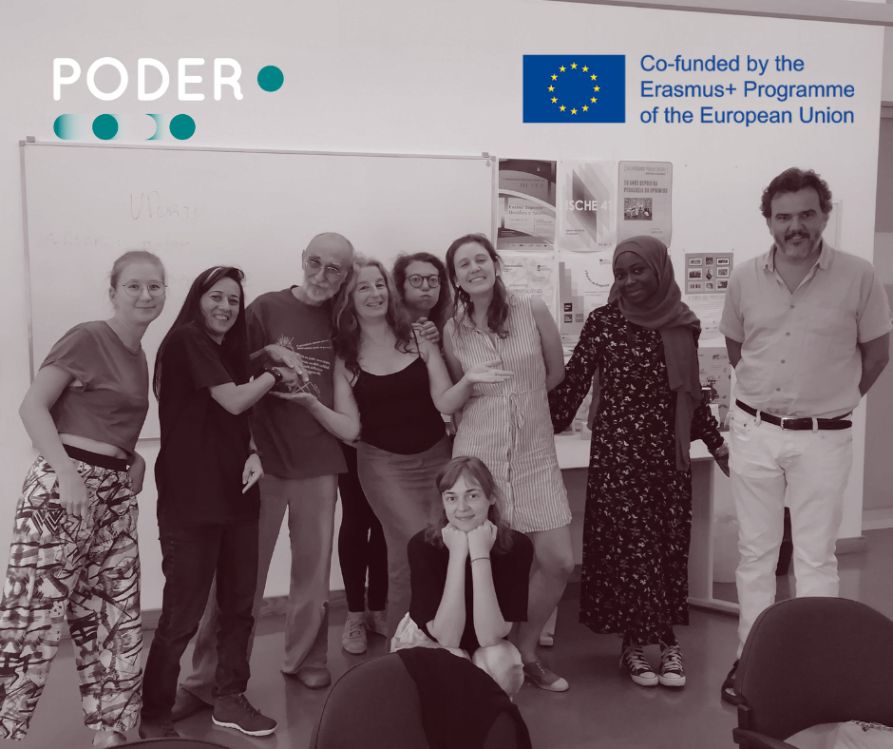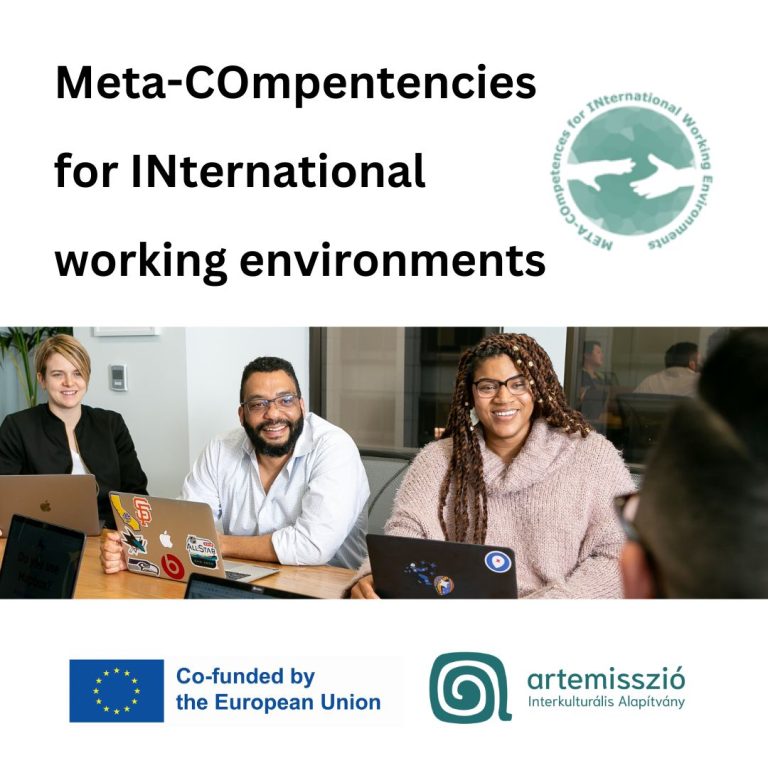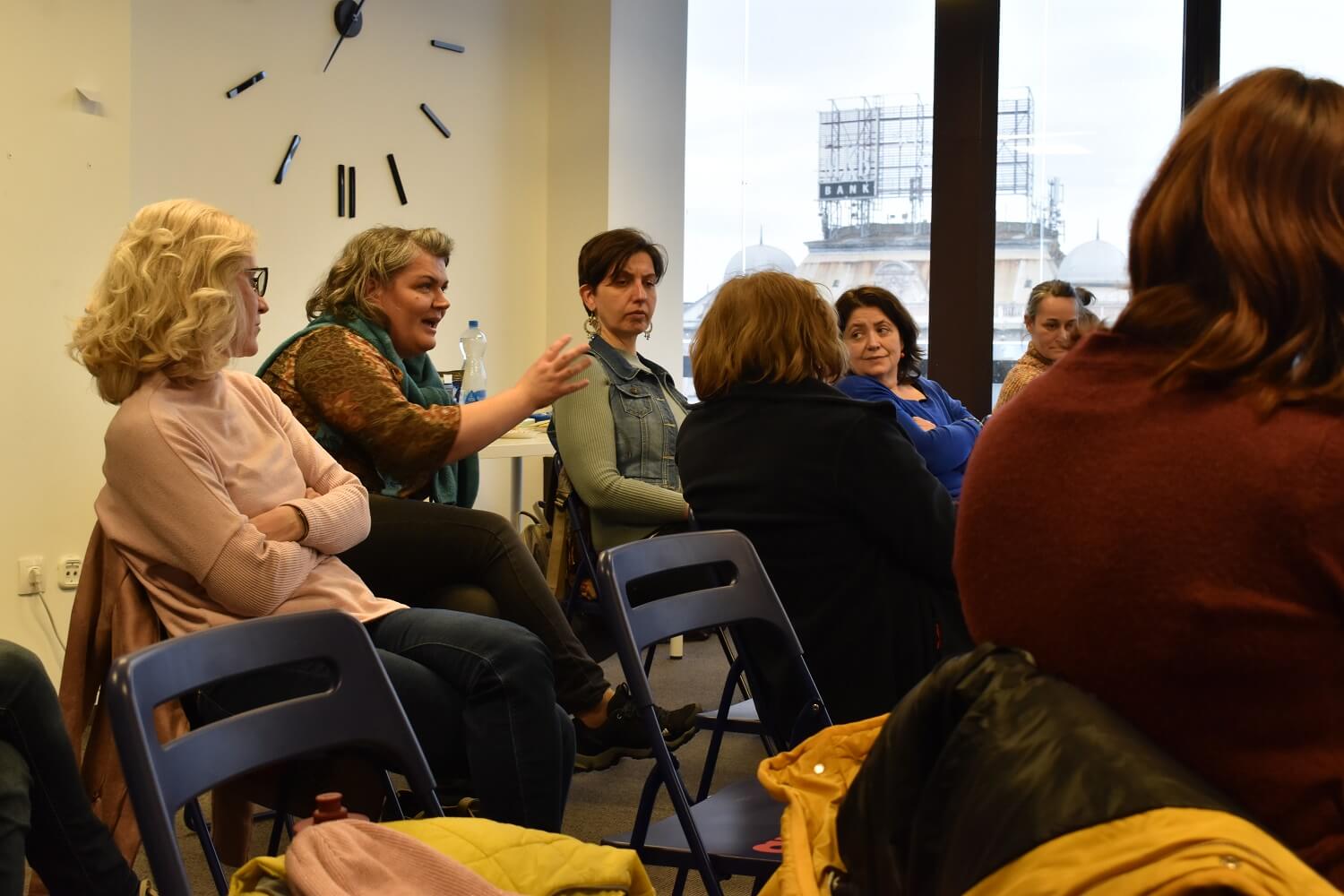Current Projects

PODER – Power dynamics in education revisited
During the two and a half years long collaboration with our partners from France, Italy, Portugal, and Spain, we aim to gain a more comprehensive view on how power and hierarchy appears in adult education. These dynamics of hierarchizations appear in all human activities. Adult education is no exception.
Adult educators’ individual predisposition to horizontality and hierarchy affects how inclusive and active the learning environment could be, as power relations are directly connected to people’s sense of dignity, recognition, autonomy. The educator’ capacity to counter group-based or even systemic exclusions will make it more or less possible for members of minority groups to participate more equally in the classroom or during trainings.
Our main objective is to identify, as well as provide knowledge and perspectives for educators and trainers about the important problem areas relating to power imbalances and identity exclusions, such as: hidden or not so hidden racism, coloniality, sexism and other gender-based and sexuality based discriminations, challenges that different minorities and poor people face. We would like to also design and offer useful competencies, tools, guides, and trainings on tackling and overcoming these often emotionally difficult challenges related to power and hierarchy more effectively.
Trainers and participants already feel the effects of power imbalances in the training room, but the issues specifically related to adult education is highly under-addressed. Thus, raising awareness of this topic and offering pathways to development is timely.
Facebook:: https://www.facebook.com/poder.project
Our partners:
- Élan Interculturel – Párizs, France https://elaninterculturel.com/
- Giolli Cooperativa Sociale – Montechiarugolo, Italy https://www.giollicoop.it/
- Ulex Project – Lleida, Spain https://ulexproject.org/
- Universidade do Porto – Porto, Portugal https://www.up.pt/portal/en/
The project is co-funded by the Erasmus+ Programme of the European Union.

META-COIN
In today’s globalized workplaces competencies that help us function in a multicultural environment are becoming increasingly important. The aim of the project META-COIN ((META-COmpetencies for INternational Working Environments) is to assess and develop these competencies that contribute to the successful operation of diverse work enviromnents. This is why we are developing a freely accessible online course that will focus on the improvement of meta-skills.
These include critical thinking, problem solving, adaptation, creativity – they all help us learn in new situations to aquire valuable knowledge that is the foundation for innovation and cooperation. Companies, organisations, VET schools will find this course useful, who want to prepare their employees/students for the challenges at the workplace. Our partners in this project are: KMOP Policy Center (Belgium) a finn Omnia (Finland), a Syncnify (France), ABU (Germany), ENGIM (Italy) and 36.6 Competence Centre (Scotland)
PREVIOUS PROJECTS

Intercultural skills cannot be improvised -"Zelda"
In the last forty years, Europe has become a multicultural, multilingual, and multireligious society. Immigration phenomena cannot be considered an emergency anymore. As European citizens, we need to develop an intercultural attitude to be able to manage the cultural differences that increasingly characterize schools, job places, social services, and public spaces.
Intercultural skills cannot be improvised: they need specific training and a self-reflective attitude, which can be learned.
We put Margalit Cohen-Emerique's intercultural training approach in the center of our new Erasmus+project.
Meet Zelda!
- fostering intercultural competences in different target groups by disseminating the MCE innovative intercultural approach thanks to training courses and multiplier events;
- developing an intercultural approach in public and private life that can help to fight against discrimination, racism, and extremism in schools, social services, public spaces, and so on;
- developing, through the intellectual outputs and the joint staff training, a standardized competences framework, a course curriculum for intercultural training, original methods, and new toolkits starting from Cohen-Emerique’s approach.
Cohen Emerique’s intercultural approach:
Cohen-Emerique noticed that migrants and professionals working with migrants often go through misunderstandings, cultural shocks and violent conflicts because of the different cultural frameworks and scale of values they act. When they live these cultural shocks, they fell vulnerable, angry, disoriented and their personal and professional skills are nearly paralyzed by these negative feelings.
Instead of breaking off dialogue and relationship, Cohen-Emerique invites trainers, educators, volunteers and migrants to live cultural shocks as an opportunity to become aware of everyone’s cultural points of view, to share them by using words in order to promote dialogue and mutual understanding.
Target groups:
- We address to intercultural trainers working in the social, education and health sectors, to professional educators working in social services, child protective services, in the juvenile justice field and in recreational public spaces.
- Adult teachers working with migrants both in formal and non-conventional schooling contexts, migrant parents, young migrants and volunteers working with immigrates in food stations, centres for first assistance and family clinics.
Our Partners:
Ruah (Italy)
Artemisszió (Hungary)
CBAI (Belgium)
CESIE (Italy)
Elan Interculturel (France)
Diesis (Belgium)





